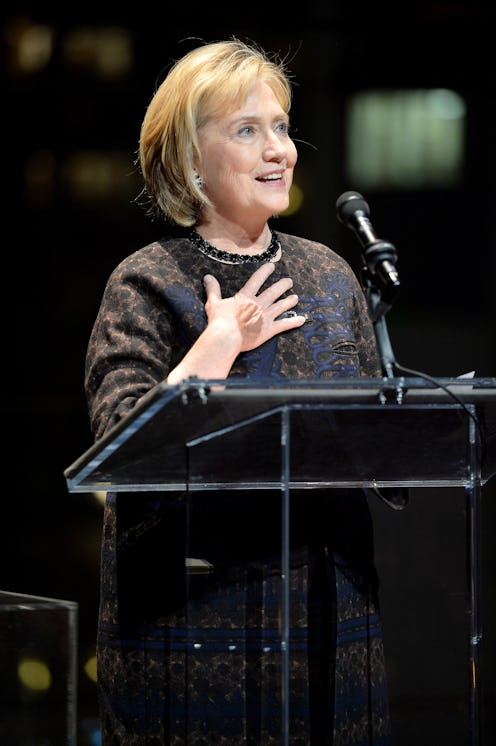News
Christie's Pain Is Hillary's Gain
Chris Christie is the 2016 presidential nominee of choice for Republicans living in the Northeast. That’s the good news (for Christie and his supporters, at least). The bad news is that you need to win the hearts of people all around the country in order to win a primary and/or general election, and Republicans in the South, Midwest, and West coast aren’t nearly as keen on Christie as their Northeast counterparts. What’s more, despite Christie’s strong showing with minority voters in his reelection last week, Hillary Clinton still clobbers him in a hypothetical head-to-head contest.
An NBC poll has 57 percent of Northeastern Republican saying they’d support Christie in a primary, compared with 22 percent who say they wouldn’t. Those are great numbers. But elsewhere, Republicans want someone else on the ticket. Only 22 percent of Republicans in the West would support Christie in a primary, compared with 40 percent who want a different nominee. The numbers are better in the Midwest (30 percent for Christie, 35 percent for someone else) and the South (27 percent Christie, 29 someone else), but the fact remains that outside of his stomping grounds, a Christie candidacy is opposed by a plurality of Republican voters.
What’s worse, the Northeast is probably the least essential part of the country for a prospective Republican presidential nominee to win over, given the general order in which states hold their primaries. Iowa is the first state to have its nominating contest, followed by New Hampshire, South Carolina, Florida, Nevada, Colorado, Missouri, and Minnesota.*
There’s exactly one Northeastern state in that mix. Christie probably stands a good chance of winning New Hampshire, but the possibility of, say, Ted Cruz scoring early victories in Iowa, South Carolina, and Florida (and basking in the subsequent media attention) is something Christie will have to account for if he makes a run at the nomination.
In a general election, things don’t get much better for the New Jersey governor. The same poll has Hillary Clinton leading him in almost all departments — African-Americans (83 percent to 4 percent), voters under 30 (45 percent to 31 percent), Latinos (44 percent to 33 percent), Southerners (43 to 35 percent), Northeasterners (52 to 35 percent), and so on. This suggests that his strong showing in New Jersey last week — and the winning coalition he was able to build — won't necessarily translate to broad support in a general election.
“As a proud New Jersey native, I can tell you Christie connects with New Jersey voters on a visceral level,” writes Dean Obeidallah at The Daily Beast. “At a time when politicians are typically ideologues or those who say whatever voters want to hear, the governor is a breath of fresh air.”
That’s probably the case (I can't say, being from California). But the question is whether Christie’s brash — some might say abrasive and rude — personal style will play well outside of his home base. As of now, it doesn’t.
*This is a rough order; last time around, primary states were constantly jockeying with one another to go first, in attempts to win more media attention and, presumably, gain more influence over the outcome.
